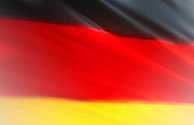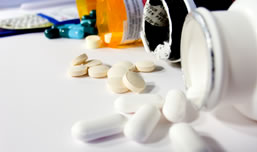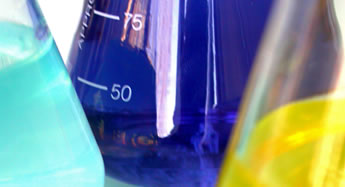Infringement of second medical use patents – important developments in Germany
September 2015
We have recently reported about the newest case law on second medical use claims in the UK, Germany and the Netherlands (see here for the last update on the UK and here for the last update on Germany). There are now major new developments in Germany to report in this area.
First instance decision in the German Pregabalin case
In April, the District Court of Hamburg decided at first instance in four preliminary injunction proceedings relating to a Pregabalin patent1 that generic companies are prohibited from entering into a rebate agreement in Germany without explicitly clarifying to the statutory health insurances and related entities that the offered substance cannot be sold / prescribed for the patented indication. Insofar as this information is publicly accessible, the decisions have at least partially been appealed. Nevertheless, although it is only a first instance decision so far, it merits closer evaluation as the reasoning discusses all the relevant case law on the infringement and scope of protection of second medical use claims so far.
Indirect infringement of second medical use patents
The District Court Hamburg decided the case on the basis of indirect infringement. For indirect infringement, Section 10 German Patent Act requires the offer or supply of a means relating to an essential element of the patent protected invention to be where the person who offers or supplies knows (or it is obvious from the circumstances) that such means are suitable and intended for exploiting the invention. There has been little case law on the indirect infringement of second medical use claims so far. Relying on the purpose-limited character of second medical use claims, the District Court Düsseldorf had required that an indirect infringement can only be given if the offer or supply is directed to the purpose of enabling the purposeful arrangement of the substance. In contrast, the offer or supply of the not-yet arranged substance for immediate use does not constitute contributory infringement.2
 Explicitly deviating from this holding of the District Court of Düsseldorf and also putting into question whether infringement of second medical use patents requires the purposeful arrangement of the substance at all, the District Court of Hamburg in the German Pregabalin case has now decided that indirect infringement can be found if the substance as such is offered or supplied even if it has not yet been purposefully arranged (because the package leaflet was skinny labelled and did not mention the indication of use protected by the patent in question).
Explicitly deviating from this holding of the District Court of Düsseldorf and also putting into question whether infringement of second medical use patents requires the purposeful arrangement of the substance at all, the District Court of Hamburg in the German Pregabalin case has now decided that indirect infringement can be found if the substance as such is offered or supplied even if it has not yet been purposefully arranged (because the package leaflet was skinny labelled and did not mention the indication of use protected by the patent in question).
The background of the case is as follows: The generic companies had participated in tenders without clarifying that the skinny labelled generic version cannot be given to patients for treating the indication protected by the patent (i.e. for treating neuropathic pain). The patent owner sought interim relief.
Substitution under social law in Germany
It is important to know the substitution law that applies in order to understand the Hamburg decision. In Germany, the physician prescribes a medicinal product under its brand name or its INN (API) indication of strength, dosage or administration form and package size. According to German Social law, by default the branded product is prescribed "aut idem"; otherwise the doctor has to cross out the "aut idem" sign. This means that every product with the same particulars as the prescribed medicinal product may be legally dispensed if both products are authorised in one identical indication. Furthermore, pressure is applied on doctors by the German public health insurances to allow substitution for budget control reasons. Public health insurance funds may offer rebate agreements to pharmaceutical companies; exclusive agreements are offered via public tenders in accordance with EU public procurement law. The pharmacist is obliged to substitute the prescribed medicine by a product for which a rebate agreement is in place. If no rebate agreement is in place for the relevant API, the pharmacist must generally dispense one of the three cheapest products that meet the requirements. Based on this automatic substitution under German social law, the District Court Hamburg found that it is not sufficient for the generics company to carve out the patented 2nd indication from the label ("skinny label") in order to avoid patent infringement if it nevertheless participates in a tender without any limitation. In parallel, in March 2015, the German Cartel Office obliged the relevant health insurance to start the tender procedure anew, this time respecting the patent law. It pointed out that the social law does not prevail over patent law, but both need to be brought into balance. Hence, it is not sufficient to just pick the least expensive offer while ignoring limitations emanating from patent protection.
Holding of the decision
Following this decision of the Federal Cartel Office, the District Court Hamburg decided that the substance – which could also be used for non-patented applications – is already purposefully arranged by the manufacture as such as it can immediately be used to treat neuropathic pain. The purpose is added by the pharmacist due to the automatic substitution rule. Hence, the conditions of indirect patent infringement are met because it is obvious that the products offered and supplied under the rebate agreement will be used in the patented indication given the regulatory / social law environment.
 Conclusion
Conclusion
The Hamburg decision concerned a so-called Swiss-type claim that is directed to the "use for the manufacture of a medicament for treating a specific indication". Nevertheless, its understanding of the scope of protection is very broad and the decision explicitly deviates from the Düsseldorf case law by pointing out that this did not consider the substitution rules at the time. Hence, it is to be seen whether Düsseldorf would follow Hamburg's view or whether they would apply a narrower view.
If you have any questions on this article or would like to propose a subject to be addressed by Synapse please contact us.


"the German Cartel Office ... pointed out that the social law does not prevail over patent law, but both need to be brought into balance."

